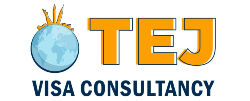New Caregiver Pilot Program: Canada Relaxes the Rules

- The Minister of Immigration, Refugees and Citizenship today announced new, enhanced caregiver pilots set to replace the current Home Child Care Provider Pilot and the Home Support Worker Pilot. These new programs represent a significant shift in Canada’s approach to attracting caregivers, providing them with immediate permanent residency (PR) upon arrival and easing their transition into the Canadian workforce. This blog will compare the new caregiver pilot programs with the previous ones, highlighting the benefits and risks of the new program.
- Overview of the New Caregiver Pilots
- The newly announced caregiver pilot programs are designed to streamline the process for caregivers to come to Canada and secure permanent residency. Key features of these programs include:
- Permanent Residency on Arrival:
Caregivers will now receive PR as soon as they arrive in Canada, a significant change from the previous requirement of gaining 12 months of relevant work experience in Canada before being eligible to apply for PR.
- Flexibility in Employment:
Caregivers will be allowed to work for organizations that provide temporary or part-time care for individuals who are semi-independent or recovering from an injury or illness. This flexibility ensures caregivers can find suitable work with reliable employers.
- Eligibility Criteria:
To be eligible, candidates must attain a minimum of level 4 based on the Canadian Language Benchmarks (CLB), hold the equivalent of a Canadian high school diploma, have recent and relevant work experience, and receive an offer for a full-time home care job.
- Comparing with the Old Caregiver Program
- The previous caregiver programs had several requirements and limitations that made the process of obtaining permanent residency more complex and lengthy for applicants. Here’s how the new programs differ:
- Educational Requirements:
Old Program: Applicants needed to have at least one year of post-secondary education.
New Program: The requirement has been relaxed to the equivalent of a Canadian high school diploma, making it more accessible for a larger pool of potential caregivers.
- Work Experience:
Old Program: Applicants were required to gain at least 12 months of relevant work experience in Canada before being eligible to apply for permanent residency.
New Program: Caregivers can now use their overseas relevant work experience to qualify for PR upon arrival, significantly reducing the waiting period and uncertainty.
- Permanent Residency Status:
Old Program: Caregivers had to navigate a prolonged process, working in Canada for a minimum period before they could apply for PR.
New Program: PR is granted upon arrival, providing immediate security and stability for caregivers and their families.
- Employment Flexibility:
Old Program: Limited to specific caregiving roles, often under stringent conditions.
New Program: Broader scope of employment opportunities, including temporary and part-time care for semi-independent individuals or those recovering from illnesses, ensuring caregivers have more options to find suitable and reliable employment.
- Benefits
- The new caregiver pilots offer several benefits over the old program. Principal benefits include:
- Immediate Stability:
Granting PR upon arrival provides caregivers and their families with immediate security and the ability to fully integrate into Canadian society from day one.
- Increased Accessibility:
By lowering the educational requirements and allowing overseas work experience, the new programs open doors for many qualified caregivers who previously couldn’t meet the stringent criteria.
- Employment Flexibility:
The ability to work in various caregiving roles ensures caregivers can find jobs that match their skills and preferences, leading to better job satisfaction and retention.
- Streamlined Process:
The new pathway simplifies the application and settlement process, reducing bureaucracy and waiting times.






